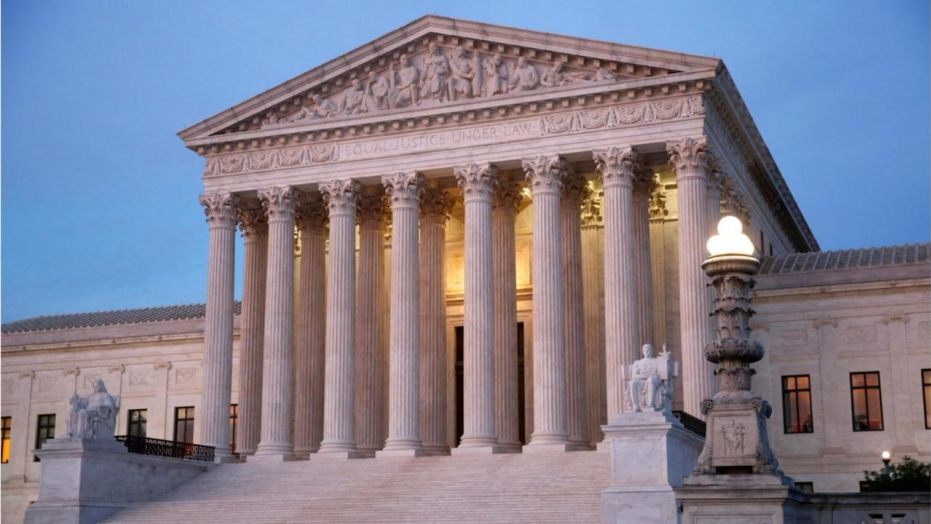By: Kimberley A. Strassel – wsj.com – December 21, 2023
Less than a month from the Iowa caucuses, the high court faces the prospect of deciding whether Colorado—and other states—can scrub Donald Trump from the ballot on grounds that the leading candidate for the Republican nomination engaged in “insurrection.” It’s also being asked to rule on whether special counsel Jack Smith can prosecute Joe Biden’s top rival for acts related to the riots of Jan. 6, 2021.
That isn’t all. The justices may be asked to settle further unprecedented questions flowing from an array of legal campaigns against Mr. Trump, including a court-imposed gag order in the Jan. 6 case; Mr. Smith’s separate prosecution involving alleged mishandling of classified documents; immunity in a New York defamation suit; and the Georgia state election-interference case. The black robes are already on the hook to pronounce on the Justice Department’s fanciful use of a financial statute that bars “corruptly” obstructing an official proceeding to convict Jan. 6 rioters.
The Supreme Court has had to issue consequential election decisions, most famously in Bush v. Gore (2000). That decision was a consequence of a tight election, the unexpected mess that was Florida’s hanging-chad ballot system, and partisan state judges attempting to rig the counting in Al Gore’s favor.
No one before Election Day planned for the 2000 outcome to land with the U.S. Supreme Court. Today’s pileup of election-related suits, by contrast, was always destined to end up there. Embittered by electoral losses, unwilling to trust the will of voters, the left now routinely turns to extraordinary legal action in hopes of pressing the courts to impose its political objectives by judicial fiat. Every party to these high-stakes, highly speculative cases knew exactly where this would end. And not one cares a whit for the consequences for the high court.
Take the Colorado Supreme Court majority, and its laughable claim in its decision this week that it didn’t “lightly” reach its finding of Trump-as-insurrectionist and was “mindful of the magnitude and weight of the questions” and “solemn” about it. The opinion was in fact so wild—glossing over basic questions of due process, federalism and the Constitution—that three liberal justices strongly rejected it. The majority knew it would be left to the U.S. Supreme Court to clean up their mess.
Mr. Smith likewise knew the minute he filed his indictments against Mr. Trump—the first criminal charges ever against a former president, filed on untested and uncharted claims in the runup to an election—that it would be the Supreme Court ultimately holding the bag. Win or lose, his name will be in the history books. The Justice Department surely considered that dusting off the Sarbanes-Oxley Act of 2002 to seek 20-year sentences for rioters would provoke a legal challenge. But worth a shot, right? Remember this strategy the next time the left screeches about the court’s “shadow docket.”
There was a day when the professional class—in particular prosecutors and lower-court judges—cared about institutions at least as much as about winning. Not this crew. What makes their actions more deplorable is the cynical view that harming the high court is an added benefit, not a cost. They come amid a vicious campaign to vilify the court as partisan and corrupt. If the justices rule against Mr. Trump in these suits, the left accomplishes an immediate political goal. If they rule in Mr. Trump’s favor, the left smears the justices and ramps up its campaign to pack the court.
The Supreme Court may have no choice but to hear and decide these cases. But there are better and worse outcomes. The biggest question now is whether the three liberal justices understand the grave risks of this lawfaring agenda—not just to the immediate moment, but to the future health of the nation. Do they sign up for the campaign with opinions that justify novel legal theories and the judicial usurpation of elections—in the process inviting more special counsels, more rogue court decisions, more litigation? Or do they recognize this game for what it is, acknowledge the sound legal reasons for why no one has attempted such reckless prosecutions and lawsuits before, and send a message it needs to stop?
The best outcome would be a string of 9-0 Supreme Court decisions that put a decisive end to the current upheaval and discourage a repeat. There’s a much easier way—for all involved—to settle the nation’s political disputes. It’s called an election. Let’s have one, and live with the results.
To see this article in its entirety and to subscribe to others like it, please choose to read more.
 Listen Online
Listen Online Watch Online
Watch Online Find a Station in Your Area
Find a Station in Your Area







 Listen Now
Listen Now Watch Online
Watch Online
